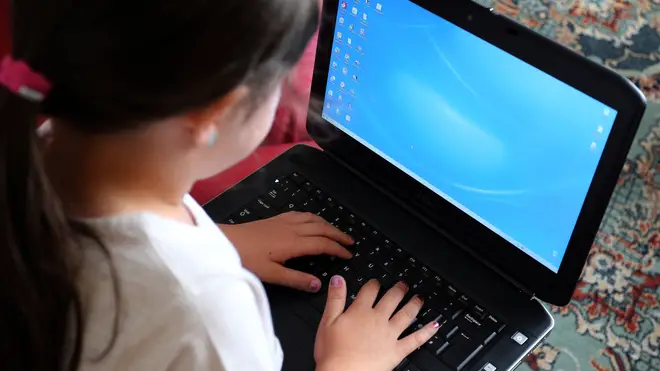
Ben Kentish 10pm - 1am
14 February 2022, 16:04

Researchers say there is a need for additional public health initiatives aimed at promoting healthy device use.
The majority of children aged five and younger are not meeting screen-time guidelines, new worldwide analysis suggests.
According to the study, only a quarter of children under two, and one in three aged two to five, are meeting international recommendations, highlighting the need for additional public health initiatives aimed at promoting healthy device use.
On average, global guidelines suggest infants younger than two avoid screen time altogether, while children aged two to five years spend no more than an hour a day in front of a screen.
Researchers say that while these guidelines have been adopted around the world, how closely they are followed varies, and precise estimates are needed in order to inform public health and policy initiatives.
Previous studies have suggested there may be a link between more regular screen use and increased likelihood of reported behavioural problems and poor developmental outcomes.
Writing in the Jama Paediatrics journal, the study authors from the University of Calgary, Canada, say: “Given how many children exceed screen-time guidelines, industry elimination of ads from programming and apps directed at children, would support healthier outcomes.
“Digital media are now a regular part of young children’s lives, and supporting families to best fit evidence-based recommendations into their daily routines needs to be a priority.”
For children aged two to five, there was a greater likelihood of meeting the guideline when screen-use limits were designated as two hours daily, instead of one.
According to the scientists, the finding that a higher proportion of children are meeting the two-hour daily guideline is important because it suggests that for many families only minor adjustments may be needed to meet the recommendation of one hour a day.
The researchers based their findings on data from 63 studies, with a total of 89, 163 participants, which mainly looked at responses to questionnaires, but some also included interviews.
For children younger than two, a large portion of the studies looked at screen use to watch TV/movies, or a combination of TV/movies and/or computers, mobile use and video games.
A minority examined the use of tablets or computer use.
For children aged two to five, a large portion of studies examined screen use via watching TV/movies exclusively, and a majority of studies used a combination of TV/movies and/or computers, tablets, and video games.
The researchers conclude: “Young children are the fastest-growing users of digital media, and parents often report that their child’s screen use is a top parenting concern.
“This meta-analysis demonstrates that the majority of children five years and younger are not meeting screen-time guidelines.”
In 2016, the American Academy of Paediatrics recommended avoiding screen time for children younger than two (outside of video chatting), and limiting screen use to one hour per day for children aged two to five years.
The World Health Organisation and paediatric societies worldwide have adopted similar guidelines.